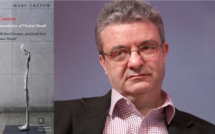
Decoupling Fundamental Rights and Security: A History of Human Mobility Rights in European Integration from 1985

Introduction
This article aims to examine the origins and evolution of the dichotomy between liberty and security in the European integration process by focusing on the case of the historical construction of the EU’s Free Movement of Persons (FMP). More particularly, it will analyze instances in which fundamental freedoms and rights were detached from security policy-making priorities within a process of ever-increasing securitization of migration and asylum in the European integration process.
Indeed, we can observe a growing tension between a mindset based on the protection, guarantee, and implementation of fundamental freedoms and rights and a worldview increasingly centered on overarching notions of security, surveillance, and control. In this regard, this article aspires to clarify the impact of historical turning points defined by a “decoupling” of security perspectives and fundamental rights in EU human mobility policy-making.
This piece will particularly highlight the critical role of the European Parliament (EP), focusing on the contributions of the EP’s most progressive voices within this remit and on their determination to advance human mobility rights per se. The main analysed primary sources come from the Historical Archives of the EU in Florence, the Historical Archives of the EP in Luxembourg and the “Barbara Sloan” EU Delegation Collection in Pittsburgh. The examined sources will help us unveil diachronic ethical imperatives and overlooked positive societal impact priorities in the drafting of the EU’s FMP by looking back in order to see beyond.
Even if this article focuses on the perspective of the EP’s most progressive actors, it is important to address the conservative vs. progressive political parties’ differences and priorities when approaching this issue. Indeed, such discussions also help us discern the struggles between conflicting visions on the implementation of the Schengen Area’s FMP. For instance, the EP’s GUE/NGL group shared Amnesty International’s fear that the Schengen Agreements may have serious implications for the protection of asylum seekers. MEP Pailler (GUE/NGL-FR) also opposed the Convention implementing Schengen, stating:
I am fighting —we are fighting— for the establishment of a totally different concept of European integration, in which the market is not the only arbiter: a Europe based on solidarity and respect for human rights[1]
From a different perspective, MEP Berthu (EDN-FR) refuted those agreements since:
The abolition of fixed personal controls at the internal borders of the Schengen area allows traffickers of all kinds to enter the Schengen area at its weakest points and subsequently spread throughout the other states.[2]
In this sense, particular attention will be paid to EP debates on these contentions as a sounding board of networked knowledge and combinatorial creativity mirroring the daily life of the EU citizenry.
Challenges and propositions of the Schengen Agreement and Convention, 1985-1992
During early discussions on the creation of a “Schengen Area” the defense of the aims of the internal market seemed to be more important than the defense of democratic rights and freedoms as such. Very much on the contrary, some progressive EP actors constituted a differential voice in this long-term debate by continuously searching for a balance between the internal market priorities and the preeminence of the FMP as an end in itself, vehemently incorporated in the so-called “Citizens’ Europe” propositions.
In 1986, some progressive EP actors devoted their attention to the crucial question of the cost of a non-united Europe in relation to Schengen area debates. Against this backdrop, the EP urged the Commission to make public the actual total cost—including the social costs—of a non-united Europe and to provide the EP with the information necessary to undertake political action to stimulate the Council to arouse public opinion in the Community on this matter.[3] This social rights approach was echoed by representatives such as MEP Vayssade (S-FR), who then stated that “we want to build Europe for the benefit of the women and men who live here,”[4] hence, meaning for all citizens and residents, within an original sense of inclusive European integration community building. These representatives also reaffirmed the need to promote immigrants’ integration into society by combating all forms of discrimination, racism or xenophobia in accordance with the Solemn Declaration by the three Institutions of June 1986. As such, they stressed “the value of the contribution made by immigrants to the building of a multi-national and multicultural European society.”[5]
Following the signature of the Convention implementing the Schengen Agreements in June 1990, the Parliament expressed critical views regarding the fact that the Convention was negotiated outside the Community institutions and, thus, the parliamentary and democratic control of its application was not guaranteed.
The challenging issue of the democratic control of the security and human rights facets of Schengen also encountered a fertile discussion ground during the 1991 Gulf war, especially with regard to non-discrimination safeguards:
The EP hopes that the Gulf war will not be used as a pretext for harsher external border controls not justified on grounds of security. It undertakes to ensure that the Gulf war is not a motive of discrimination against non-Community nationals and calls on the governments of the Member States and the other Community institutions to do the same.[6]
Another issue of key importance scrutinized by these EP progressive players was an escalating violation of privacy as part of the Schengen Area implementation. In this respect, they even referred to the fact that Schengen was presented as a probable excuse for a systematic classification, profiling and follow-up of the movements of European citizens, an idea which resonates with today’s generalized violations of the privacy rights of global citizens:
First the Schengen Information System (SIS) and then the European Information System (EIS): Is Europe collecting information about its citizens on a hard disk?[7]
Such trend also correlates with the increasing securitization of migration as a business model and takes into consideration the negative impact of an over-concentration on an economic—or, more accurately on a merely monetary—integration, while social, cultural and environmental dimensions are utterly disregarded.
The post-Maastricht democratic déficit and the Schengen Area
During this phase, progressive EP actors launched a dialogue with conservative counterparts on how the FMP would not hamper ongoing EU actions against drugs trafficking and organized crime overall. They also rejected as ill-founded the arguments related to the need for preliminary actions within this remit to propose an ever-growing delay of the implementation of the FMP, which was being increasingly relegated as the “fourth freedom.”
Very significantly, and coinciding with the war in the ex-Yugoslavia, the EP was starting to be used as a sounding board of then minority, yet increasingly more present, nationalist and xenophobic voices, channeled by MEPs such as Jean-Marie Le Pen, and setting severe hindrances to human mobility rights in their wake:
We stress the need to harmonize the methods for obtaining nationality by basing them on the parental relationship (ius sanguinis) rather than on the place of birth (ius soli).[8]
These discussions helped consolidating the existence of the largely condemned “Fortress Europe,” at least in conceptual terms. Apart from a clear xenophobic element, the proposed measures entailing a seeming elimination of criminal activities via externalization were strongly criticized by progressive MEPs in EP debates by reminding that the transnational presence and actions of profoundly rooted organized crime did not stop at national frontiers but operate in spite of them and in direct correlation to interdependent, globalized networks.
Alternatively, the crucial and multilayered issue of migration was then addressed from a diversity of intertwined perspectives linking human mobility rights to the very essence of democracy. As MEP Roth (V-DE) affirmed
It takes a particularly mischievous imagination to trace the ideological and political basis of this witch-hunt against non-Community citizens. (…)A co-existence in which all those who live here, work here, and have their lives centered here are granted the same rights. That is not an exaggeration, but the foundation of democracy.[9]
In this context, the neglecting of the solidarity and diversity dimensions of European integration was said to have contributed to the degradation of the quality of democracy in the EU, thus making it less bound to humanly respond to humanitarian crises in the long run:
By lumping together legal and illegal immigration, by placing on every immigrant a permanent and systematic suspicion of guilt, we give free rein to the xenophobic violence of some and a clear consciousness to the widespread but still inactive racism of others. Human rights must not be a matter of variable geometry. They are universal and immutable. The right of asylum, the right to live with one’s family, the right to move about, the international conventions, are not to be interpreted in one way for a period of economic expansion and another for a time of recession.[10]
In a similar vein, MEP De Piccoli (PSE-IT) indicated that “immigration from third countries cannot be stopped now nor it will be stopped in the future: so we must create instruments for managing it adequately. Controlling immigration must mean a policy of integration based on full recognition of civil and political rights of those who reside legally in the Community.”[11]
At this time, EP progressive players also expressed a rising fear about legal migration being put into question per se, as MEP Coimbra Martins (PSE-PT) maintained, reclaiming a return to the increasingly neglected, yet empowering, solidarity principle:
Are these officials trying to prevent illegal immigration or disrupt, discourage and put an end to legal immigration? Do we adopt the laws that the economic and political situation requires, or will the demons of racial purity be released? After all, we are all immigrants and our residence permit is only temporary.[12]
Against this backdrop, the EP debates showed a converging defence of the idea that the FMP was not just an integral part of the internal market but also one of the main objectives of the EU, in accordance with article 7a EC. Thus, it stood in direct correlation with the essence of a “European citizenship.”[13]
As the “Fortress Europe” notion was gaining traction, MEP Pailler (GUE/NGL-FR) then offered one of its most critical definitions:
Human rights organizations are right to be alarmed and to warn of the dangers. I am opposed to the creation of this ‘Fortress Europe’, which in enhancing its own security remains deaf to the appeals of the victims of repression and poverty; this discriminatory Europe, which denies immigrants the right to vote in municipal and European elections, despite the recommendations of the Council of Europe; this Europe in which money is free to circulate, while men and women are unable to cross the frontiers of fear and indifference.[14]
Concomitantly, MEP Roth (V-DE) alluded then to the revealing concept of ‘sugar coating’ relating to the decoupling of human rights and security perspectives in human mobility rights policy-making:
The opening of the internal borders was the sugar coating designed to conceal the taste of the new barriers at the external borders of Schengen, and to legitimize the fact that the new Schengen frontiers have been created within the European Union.[15]
From a different perspective, the EU’s engagement in the Kosovo crisis was then presented as the start of “a genuine common foreign and security policy…a new “Marshall Plan.”[16] This tectonic shift was particularly marked by the entry into force of the significant EUROPOL Convention in 1998. Defying the trends already in motion in this context, MEP Mohamed Alí (GUE/NGL-ES) emphasized the key concept of the “socio-cultural integration of immigrants”:
In this Schengen area that is being created, there should be a clause making it possible to implement common policies on the socio-cultural integration of immigrants, avoiding any discrimination against people or groups due to race, colour or religion or due to national or social orientation.[17]
Complementarily, this MEP also warned about the interrelated fact that “there is a problem that is not less important in the creation of this Schengen Area of freedom and justice: the protection of personal data, which must be guaranteed without exception in any democratic society.”[18] Indeed, the inception of an erosion of the protection of personal data and privacy laws was underway since then, constituting one of the main points of de-coupling between human rights and security which would inextricably turn citizens away from institutions.
Conclusion
If we look back into historical sources and developments in order to see beyond, searching for future positive societal impact insights, we can find numerous references to the idea that the EU should primarily be an ethically committed political player active in bringing up the human rights, solidarity and social cohesion dimensions of the European integration process. The examined points of de-coupling of human rights and security perspectives when addressing human mobility rights policy-making also remind us about the priority to restore “human mobility rights” as fundamental human rights to re-launch a converging dialogue between citizens and institutions. This could be a meeting point in times of radical change in which mobility could become an even more regulated privilege and in which data is being considered as “the new oil.”
In this respect the differential EP documentation on these crucial matters can enhance our capacity to look deeper at policy innovation and principle tracing, hence, constituting a compelling reminder—now more than ever—of the many times unused citizens’ participative potential and transformative power.
Cristina Blanco Sío-López is Marie Skłodowska-Curie Senior Global Fellow and Principal Investigator (PI) of the EU Horizon 2020 research project ‘Navigating Schengen: Historical Challenges and Potentialities of the EU’s Free Movement of Persons, 1985-2015’ (NAVSCHEN) at the European Studies Center (ESC) – EU Jean Monnet European Centre of Excellence (JMEUCE) of the University of Pittsburgh and at the Ca’ Foscari University of Venice. She previously was Assistant Professor in ‘European Culture and Politics’ at the University of Groningen and ‘Santander’ Senior Fellow in European Studies at the European Studies Centre (ESC) – St. Antony’s College of the University of Oxford, where she remains a Senior Member. She is a Member of the Global Young Academy (GYA) and received the 2018-2019 CES – IMSISS Visiting Fellowship Award at the University of Glasgow. Her research and publications focus on European Integration History, with an accent on enlargement policy temporalities and the Schengen Area fundamental rights.
This article is an outcome of the NAVSCHEN project, which has received funding from the EU’s H-2020 research and innovation program under the Marie Skłodowska-Curie grant agreement 841201.
This research is sponsored by the IMSISS-CES Visiting Scholar Fellowship, funded and awarded in collaboration by IMSISS and the Council for European Studies (CES) at Columbia University.
References:
[1] EP debates of 10 March 1997 on the future of Schengen, No 4-196/7, pp. 6-13.
[2]EP debates of 6 June 1995 on Schengen and the right of asylum, p. 8.
[3] Resolution of the European Parliament of 14 July12 June 1986 on the cost of a non-united Europe, OJ C 176/125, 14 July 1986, p. 125.
[4]Ibid.
[5] Motion for a Resolution of the European Parliament of 8 13 September 1988 on the Citizen’s People’s Europe, OJ C 497/88262, 8 September10 October 1988, pp. 40-41.
[6] Motion for a Resolution of the European Parliament of 14 February 1991 on the Schengen Agreement, OJ C 0086/91, 14 February 1991.
[7]Ibid.
[8] Motion for a Resolution of the European Parliament of 19 May 1993 on barriers to the free movement of persons within the Community and Schengen Agreement , OJ C 665/93, 19 May 1993.
[9]European Parliament debates of 15 July 1993 on Immigration, pp. 150-165.
[10]Ibid.
[11]Ibid.
[12] Ibid.
[13] Resolution of the European Parliament of 6 April 1995 on the Schengen Agreement and political asylum, OJ C 109/169, 6 April 1995.
[14] European Parliament debates of 6 June April 1995 on Schengen and the right of asylum, No 4-461, pp. 202-206.
[15]Briefing of 5 March 1997 on the ICG and the democratic nature of the Union, Secretariat Working Party, Task-force on the ‘Intergovernmental Conference”.
[16]European Parliament debates of 14 January 1999 on Schengen cooperation, pp. 240-254.
[17] Ibid.
[18] Ibid.
Photo: Painting by Juan Genovés, photographed by Cristina Blanco Sío-López
Published on August 4, 2020.




